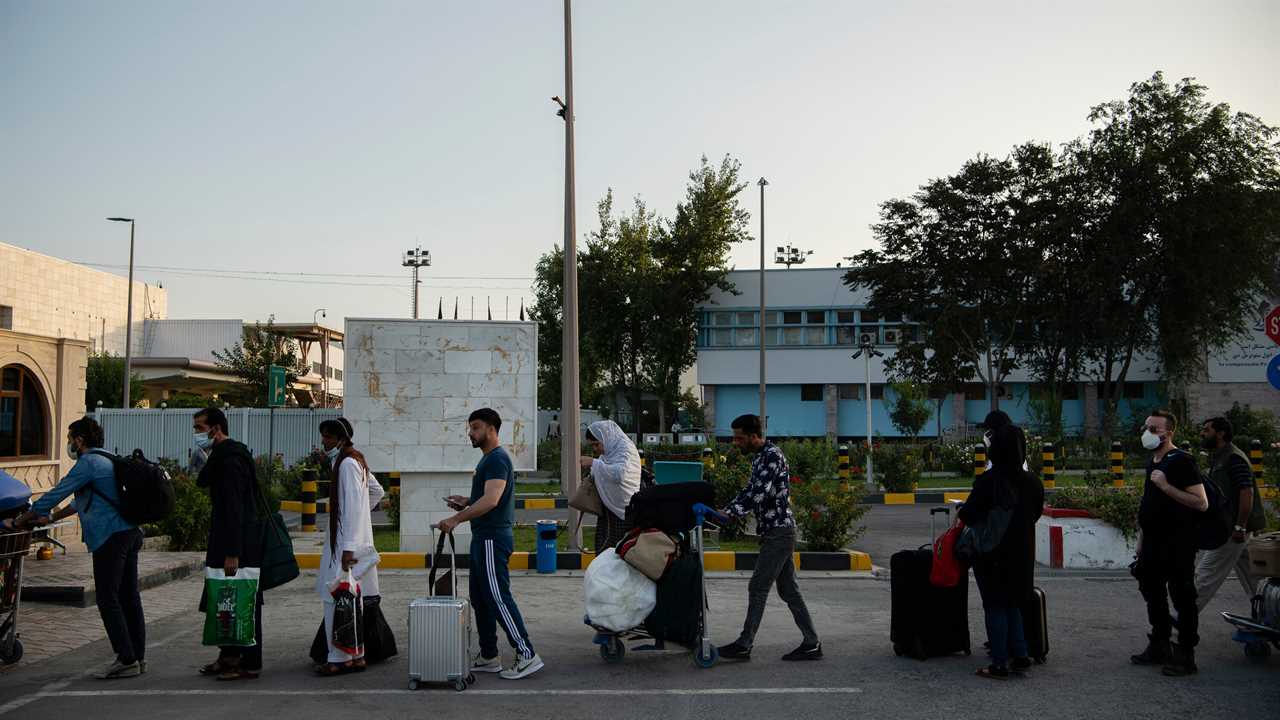
Tens of thousands of Afghan nationals risked their lives to help the United States military in Afghanistan, many of them working as interpreters in combat. Now, after the Taliban’s takeover, they are desperate to leave — but passage to the United States may prove elusive.
More than 300,000 Afghan civilians have been affiliated with the American mission over its two-decade presence in the country, according to the International Rescue Committee, but a minority qualify for refugee protection in the United States.
About 2,000 such people whose cases already had been approved have arrived in the United States on evacuation flights from Kabul, the capital, that began in July. President Biden said on Monday while addressing the nation that there were plans to airlift more Afghan families in “coming days,” though he provided no details.
Refugee advocates said they feared that thousands of vulnerable people were likely to be left behind, at their peril, as militants tightened their grip on Afghanistan’s territory.
Who are the vulnerable allies?
Since 2002, the United States has employed Afghans to assist U.S. troops, diplomats and aid workers. Many were threatened, kidnapped and attacked, and an unknown number killed, as a result of their association with the United States. In response, Congress created the special immigrant visa programs to give such workers a path to legal residency in the United States.
But the programs, which enjoy broad bipartisan support, have been marred by processing delays.
Who qualifies for visas?
Applicants must show they have been employed for at least two years by the U.S. government or an associated entity. Among other paperwork, they must prove they performed valuable service by providing a recommendation from an American supervisor. They must also show that they have experienced, or are experiencing, a serious threat as a consequence of their work for the United States.
How many are waiting to come?
More than 15,000 Afghan nationals, plus family members, have already been resettled in the United States with special immigrant visas, out of a total of 34,500 authorized visas.
At least 18,000 people have applications pending, and that number is expected to increase considerably given the deteriorating situation in Afghanistan.
Critics say that the U.S. government, going back several administrations, has delayed special immigrant visa approvals by demanding an extraordinary amount of documentation as part of an unwieldy 14-step process.
Applicants have faced average wait times of three years, though Congress had specified that it should take no more than nine months. Many have been waiting as long as a decade for the outcome of their cases.
Are they considered refugees?
Special immigrant visa recipients are eligible for the same resettlement benefits as refugees. They arrive with green cards, and can apply for U.S. citizenship after five years. But they are not classified as refugees, nor do they count against the number of refugees that the United States commits to admitting each year.
How is the Biden administration resolving the crisis?
The U.S. government since July has evacuated about 2,000 interpreters and their family members whose cases had already been approved. They were brought from Kabul to the Fort Lee military base south of Richmond, Va., and many have since been sent to cities across the country. But staff members from refugee resettlement agencies were notified after the latest flight landed on Sunday that plans to evacuate more Afghans had been suspended.
Garry Reid, a civilian Pentagon official charged with handling the evacuations, said on Monday that 700 Afghan allies had been evacuated in the previous 48 hours. He said the United States would scale up by receiving more departing Afghans at U.S. military bases, but he did not offer a specific timeline.
The Biden administration also had been negotiating with several countries in the Middle East and Central Asia to temporarily host some people until they can be resettled in the United States. But it was not clear whether it would even be possible to evacuate more Afghan allies, at least for now, given the volatility on the ground.
Did you miss our previous article...
https://trendinginthenews.com/usa-politics/us-to-advise-boosters-for-most-americans-8-months-after-vaccination






